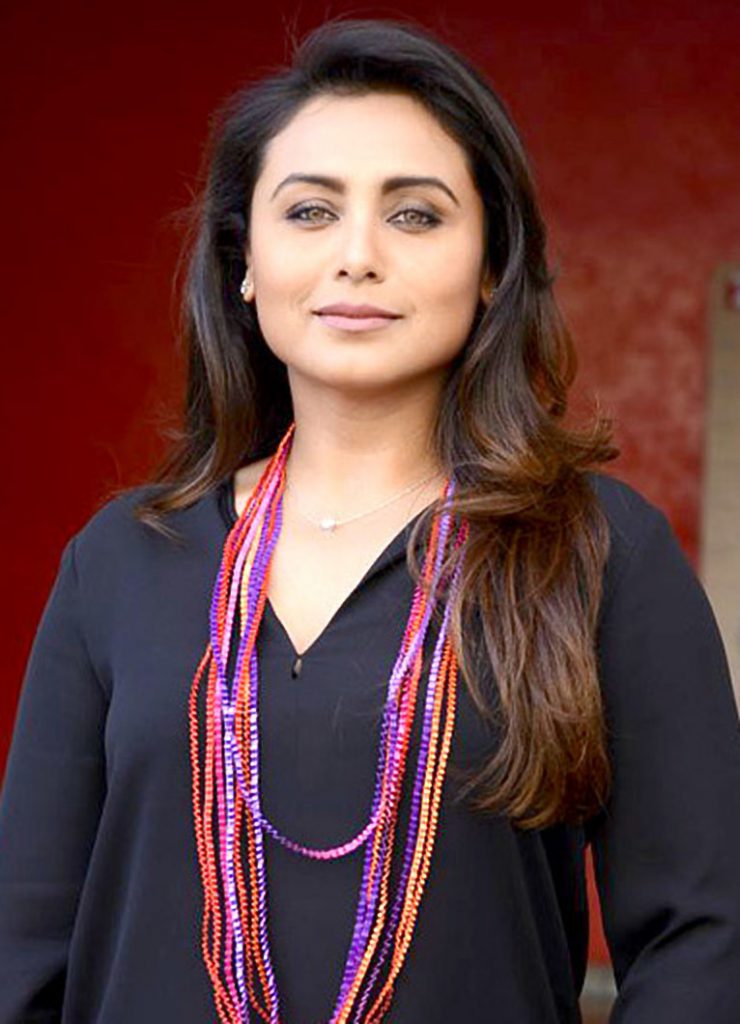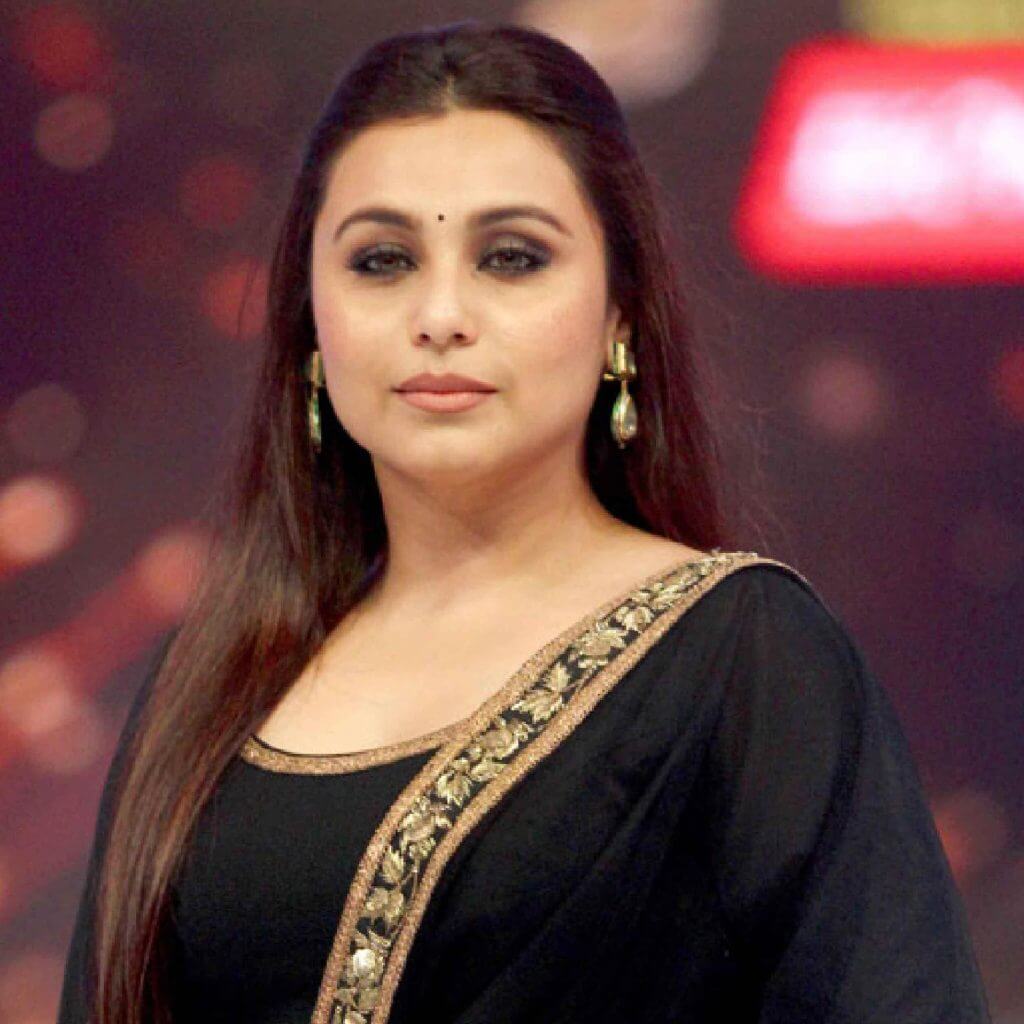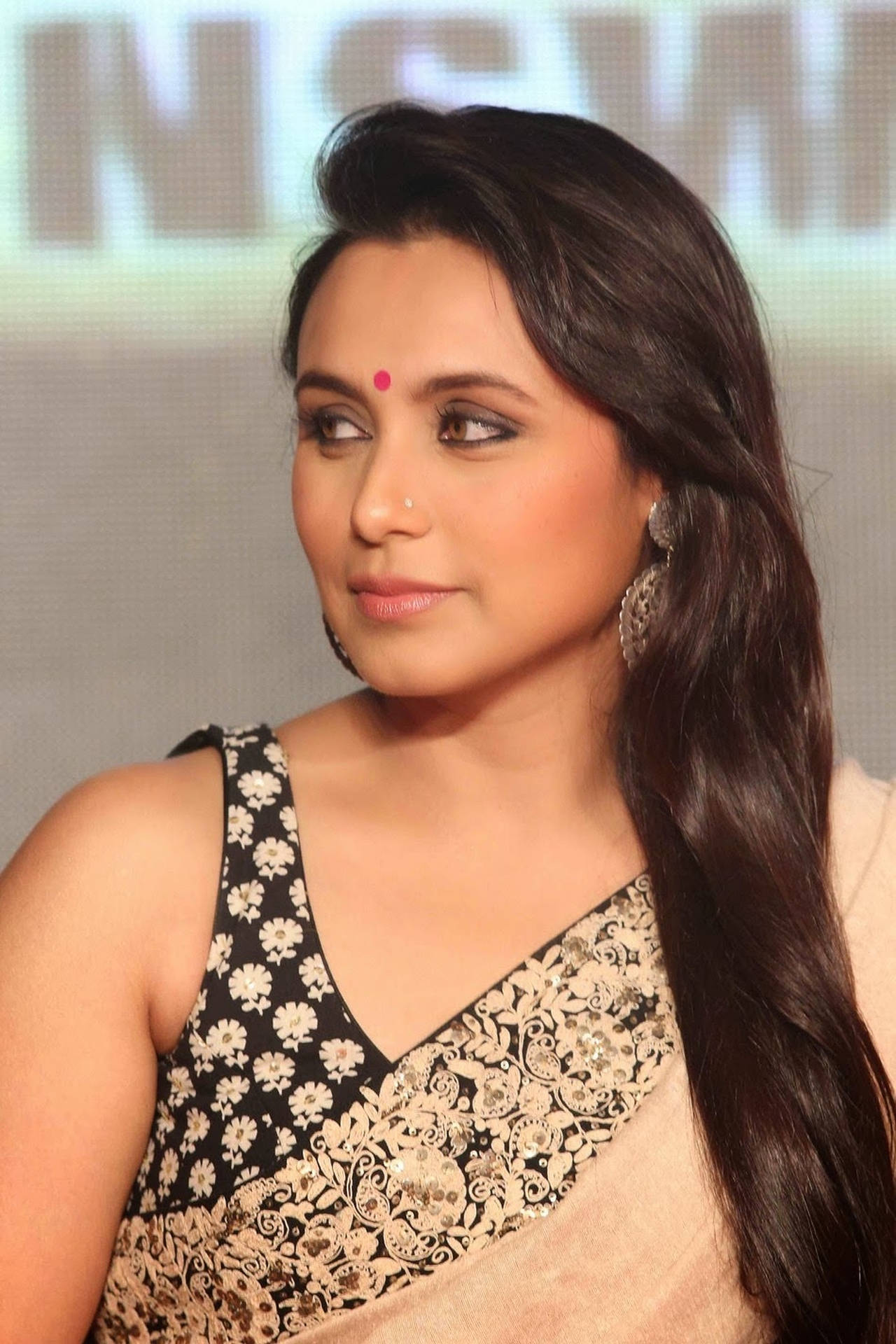Could Rani Mukerji's enduring appeal be a testament to her extraordinary ability to embody a diverse range of characters, captivating audiences across generations? Her talent, a potent blend of vulnerability and strength, has cemented her status as one of Bollywood's most versatile and respected actresses, making her a true icon in the realm of Indian cinema.
From the boisterous camaraderie of "Kuch Kuch Hota Hai" to the poignant portrayal of a deaf and blind woman in "Black," Rani Mukerji's filmography is a rich tapestry woven with threads of memorable performances. Her journey through the world of cinema has been a remarkable exploration, showcasing her evolution as an artist and her commitment to challenging roles. Beyond the glitz and glamour, Mukerji's narrative reveals a story of unwavering dedication, a fierce independent spirit, and a consistent pursuit of artistic excellence. This has established her as a significant figure in the ever-evolving landscape of Indian cinema.
| Category | Details |
|---|---|
| Full Name | Rani Mukerji |
| Date of Birth | March 21, 1978 |
| Place of Birth | Mumbai, Maharashtra, India |
| Nationality | Indian |
| Height | 5 ft 4 in (1.63 m) |
| Spouse | Aditya Chopra (m. 2014) |
| Children | 1 (Adira Chopra) |
| Parents | Ram Mukherjee (father), Krishna Mukherjee (mother) |
| Family | Related to the Mukherjee-Samarth film family, including Kajol and Tanisha Mukherjee |
| Education | Maneckji Cooper High School, Mumbai; SNDT Women's University, Mumbai (briefly) |
| Debut Film | Raja Ki Ayegi Baraat (1997) |
| Notable Films | Kuch Kuch Hota Hai (1998), Black (2005), Veer-Zaara (2004), Mardaani (2014), Hichki (2018) |
| Awards | Multiple Filmfare Awards, including Best Actress for "Black" |
| Known For | Versatility, strong performances, and portrayal of complex female characters. |
| Years Active | 1997present |
| Production Company | Yash Raj Films (primarily associated) |
| Reference | Wikipedia - Rani Mukerji |
Mukerji's foray into Bollywood was not a preordained path; rather, it was a gradual convergence of fate and familial influence. Her family, deeply entrenched in the film industry, undoubtedly shaped her early aspirations, yet her ultimate success is solely attributable to her own intrinsic talents and unrelenting work ethic. Her introduction to the industry came with the film "Raja Ki Ayegi Baraat" in 1997, a performance that showcased her potential but did not immediately catapult her to stardom. This early experience, however, served as a foundational learning experience, priming her for the more impactful roles that were soon to follow.
- Alvin And The Chipmunks Alvin Crying Ndash The Heartfelt Story Behind The Tears
- Lauryn Cash Death Birmingham Al The Untold Story That Needs To Be Heard
The late 1990s and early 2000s witnessed the blossoming of Rani Mukerji's career. It was during this period that she truly began to captivate audiences and critics alike. The film "Kuch Kuch Hota Hai" (1998), a romantic drama directed by Karan Johar, proved to be a breakthrough moment. Playing the vivacious and stylish Tina, Mukerji perfectly embodied the role and instantly became a household name. This film highlighted her capacity for effervescence, displaying a certain energy that resonated with a vast audience. This iconic role became the cornerstone of her mainstream recognition, opening up the doors for a myriad of exciting projects.
Subsequent roles offered her opportunities to demonstrate her considerable acting range. She showed her ability to portray characters with depth and substance, moving beyond the conventional roles typically offered to actresses. Films such as "Ghulam" (1998), which showcased a darker, more intense side, and "Saathiya" (2002), which presented a mature and nuanced portrayal of love and relationships, revealed her versatility. Each film was a step forward in her evolving acting journey, solidifying her place in the industry as more than just a glamorous star. She was, more importantly, being recognized as a performer with genuine artistic capabilities.
Rani Mukerji's commitment to her craft is evident in her selection of projects. She has frequently chosen roles that challenge societal norms and present complex female characters. This is particularly evident in her work in the mid-2000s. Films like "Hum Tum" (2004), where she showcased both comedic timing and emotional depth, and "Veer-Zaara" (2004), where she delivered a poignant performance, displayed her capacity to embrace diverse roles and genres. These films demonstrated her willingness to experiment and take on roles that were both commercially viable and artistically satisfying.
- Discover The Fascinating World Of Ima Butterfly
- Alba Nunell The Rising Star Of Fashion And Entertainment
Her performance in "Black" (2005), directed by Sanjay Leela Bhansali, is arguably one of the most significant achievements of her career. In this film, Mukerji played a deaf and blind woman, and her portrayal was universally lauded by critics and audiences. The role demanded a profound level of emotional and physical commitment, and she delivered a performance that was both subtle and incredibly powerful. The role showcased the depths of her acting prowess, firmly establishing her as a tour de force of Indian cinema. This film earned her numerous accolades, including the Filmfare Award for Best Actress, cementing her status as a serious actress of unmatched talent.
Her collaboration with Aditya Chopra, which later culminated in their marriage, also significantly influenced her career trajectory. Chopra, a leading figure in the Yash Raj Films banner, provided Mukerji with opportunities to work on a number of commercially successful and critically acclaimed projects. The professional relationship, over time, developed into a personal one, marking a significant chapter in her life. This also reflects her ability to build strong professional relationships that led to her professional and personal fulfillment. Her personal life choices did not diminish her focus on her career.
The next phase of her career saw her embrace more diverse roles, as she continued to work with prominent directors and production houses. The films "Kabhi Alvida Naa Kehna" (2006) and "No One Killed Jessica" (2011) displayed her ability to deliver nuanced portrayals of complex characters. These films were a testament to her unwavering dedication to her craft and her ability to portray complex narratives. They also offered the opportunity to collaborate with other talented artists.
In recent years, Rani Mukerji has continued to select roles that highlight her commitment to impactful storytelling. "Mardaani" (2014), in which she played a police officer, and "Hichki" (2018), where she portrayed a teacher with Tourette's syndrome, both garnered critical acclaim and demonstrated her ability to tackle socially relevant themes. Her choices reflect a desire to use her platform to address important issues. Her selections signal a conscious commitment to engaging with contemporary social issues. Her roles resonate with a contemporary audience that appreciates meaningful storytelling and a commitment to social commentary.
"Mardaani" was a particularly significant film, given its focus on the sensitive topic of human trafficking. Mukerji's portrayal of Shivani Shivaji Roy, a fearless cop, resonated with audiences. The film not only demonstrated her action and drama expertise but also highlighted her ability to portray strong, independent women who are often underrepresented in mainstream cinema. The success of "Mardaani" underlined her appeal, as well as her capacity to carry a film that centered around a female character. The success of the film led to "Mardaani 2" which also featured her in the lead role.
"Hichki" offered her an opportunity to connect with audiences through a unique narrative. The film tackled a story of a teacher with Tourette's syndrome who is trying to make a difference in the lives of underprivileged children. The movie underscored her ability to portray vulnerability and strength at the same time, resulting in a performance that struck an emotional chord. It reinforced her brand as an actress of substance who is not afraid to explore unconventional themes. The films success also highlights the importance of inclusion and acceptance.
Beyond acting, Rani Mukerji has also been involved in various philanthropic endeavors. She has supported causes related to women's empowerment, education, and child welfare. Her contributions demonstrate her commitment to using her platform for positive change, showcasing her understanding of social responsibility. She is often involved in charitable activities, contributing her support and time. These endeavors show a side of her that goes beyond her acting career, further solidifying her role as an icon.
Over the years, Rani Mukerji has evolved not just as an actress but also as a public figure. Her interactions with the media, her red carpet appearances, and her personal style have all contributed to her enduring appeal. Her fashion choices, the way she carries herself, and the interviews she gives all contribute to her public persona. She has always presented herself with grace and confidence. Her public image has been carefully cultivated over the years.
The impact of Rani Mukerji extends beyond her acting achievements. She has served as an inspiration for aspiring actresses, particularly those who are seeking to carve out a niche for themselves in the industry. Her success is a testament to her dedication to her craft, resilience and determination. Her choices in roles have often been unconventional. She has consistently pushed the boundaries and has contributed to changing the portrayal of women in Indian cinema. Her impact is particularly felt by younger generations.
The Indian film industry, like any industry, undergoes constant changes and transformations. As such, Rani Mukerji's longevity and success are a testament to her ability to adapt and reinvent herself. She has remained relevant by consistently challenging herself with varied roles. This capacity to stay at the forefront of an ever-changing industry signifies her enduring legacy. She continues to be a vital force in Indian cinema.
Looking ahead, Rani Mukerji's filmography holds the promise of continued creative exploration. With each project, she seems to reaffirm her commitment to delivering performances of the highest calibre. Her ongoing influence ensures that she remains a central figure in Indian cinema. Her passion for acting is evident in every role she undertakes, and her continued presence promises much more for the future.
Rani Mukerji's journey is not just that of a successful actress; it is a story of perseverance, evolution, and artistic vision. Her ability to breathe life into diverse characters, her commitment to social causes, and her enduring appeal all contribute to her enduring legacy in the Indian film industry. The coming years will undoubtedly bring more exciting projects, cementing her status as an icon of Indian cinema.
- Arlington Bluetooth Smart Watch Your Ultimate Smart Companion
- How To Add Friends In Free Fire By Id The Ultimate Guide For Players


